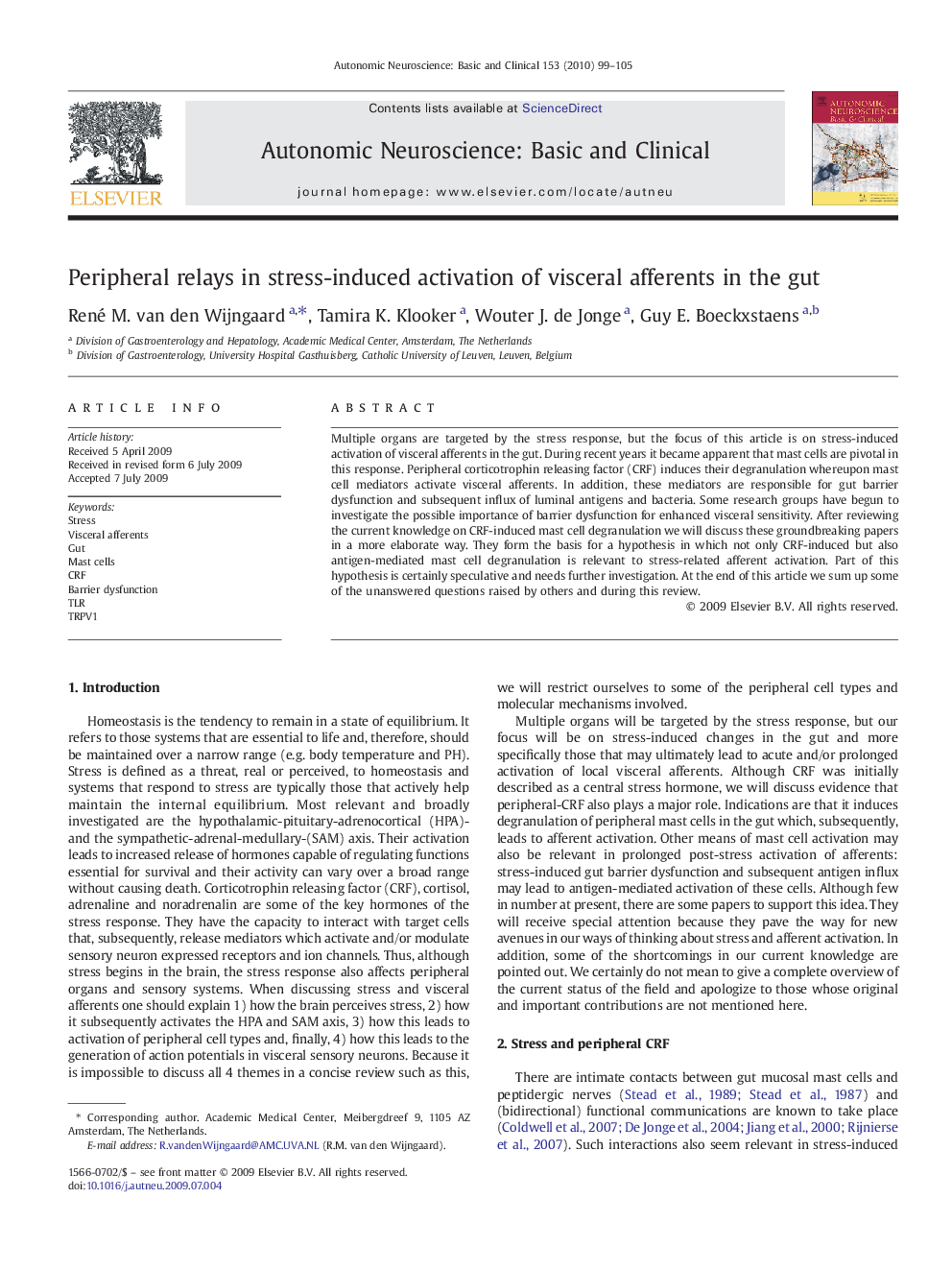| Article ID | Journal | Published Year | Pages | File Type |
|---|---|---|---|---|
| 3035149 | Autonomic Neuroscience | 2010 | 7 Pages |
Multiple organs are targeted by the stress response, but the focus of this article is on stress-induced activation of visceral afferents in the gut. During recent years it became apparent that mast cells are pivotal in this response. Peripheral corticotrophin releasing factor (CRF) induces their degranulation whereupon mast cell mediators activate visceral afferents. In addition, these mediators are responsible for gut barrier dysfunction and subsequent influx of luminal antigens and bacteria. Some research groups have begun to investigate the possible importance of barrier dysfunction for enhanced visceral sensitivity. After reviewing the current knowledge on CRF-induced mast cell degranulation we will discuss these groundbreaking papers in a more elaborate way. They form the basis for a hypothesis in which not only CRF-induced but also antigen-mediated mast cell degranulation is relevant to stress-related afferent activation. Part of this hypothesis is certainly speculative and needs further investigation. At the end of this article we sum up some of the unanswered questions raised by others and during this review.
